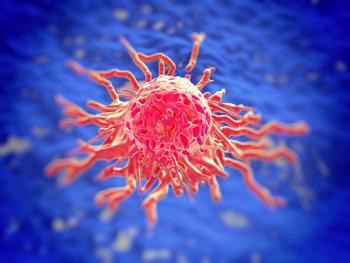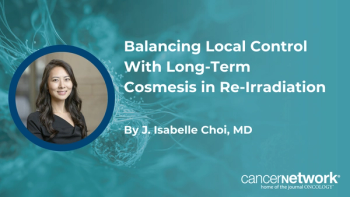
Kelley Lauren Coffman, MD, on the Next Steps for a Study of 177Lu-DOTATATE in Well-Differentiated, High-Grade NETs
The hospitalist at Memorial Sloan Kettering Cancer Center spoke about the next steps for a study which evaluated patients with well-differentiated, high-grade neuroendocrine tumors (NETs) who were treated with 177Lu-DOTATATE.
Study findings presented at the 2021 American Society of Clinical Oncology (ASCO) Gastrointestinal Cancers Symposium revealed that investigators saw a meaningful disease control rate among patients with well-differentiated, high-grade neuroendocrine tumors (NETs) who were treated with 177Lu-DOTATATE (Lutathera).
In an interview with CancerNetwork®, Kelley Lauren Coffman, MD, a hospitalist at Memorial Sloan Kettering Cancer Center, explained what she believes are the next steps for this research.
Transcription:
Our group has a particular interest in identifying genetic or biomarkers that might help beforehand to predict a patient’s response to therapy. Even in our study [and] in our review of these patients, we looked at the last 2 years. We had access to genetic sequencing, and about two-thirds of the tumors [by] a basic genetic review [demonstrated] mutations…similar to what we expected for well-differentiated tumor types. In the future, going forward, we’d really like to see if there’s a way to identify either genetic or biomarkers that might predict response or resistance to this therapy so that beforehand, you could really identify which patients are going to benefit without subjecting them to the toxicities.
Newsletter
Stay up to date on recent advances in the multidisciplinary approach to cancer.












































